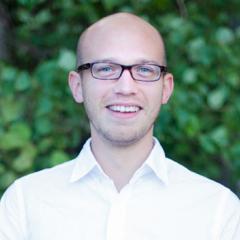Hoyt on using probiotics to stop white nose syndrome
That people are fascinated by bats can be shown in the number of sold-out walk and talk tours scheduled by the Yolo Basin Foundation to watch the colony of Mexican free-tailed bats that take off from the Yolo Causeway on a hunt for insects every summer night.
Fascination could turn to frustration, however, as bat populations decline in the face of an approaching threat.
Fourteen hibernating bat species in Northern California are at risk from a fungus that causes white nose syndrome, which has been spreading westward since it originated in New York in 2006.
...
There is no way to inoculate or vaccinate hibernating bats, “because their immune systems are turned off. … You can’t give them palliative care or supportive care to keep them alive for the rest of the winter,” said David Wyatt, a biology professor at Sacramento City College.
“If you go in and kill all the soil fungus and everything else,” Wyatt added, “then you’ve just destroyed the ecosystems of the cave. It’s the perfect storm. It’s worse than we could have imagined.”
For this reason, researchers are looking at introducing bacteria already present in the bat’s natural habitat.
Researchers from UC Santa Cruz swabbed bats hibernating in caves in Virginia and New York and isolated six bacteria that inhibited the growth of the fungus. The results were published on April 8 in the journal PLOS ONE.
The next moves would be to develop a probiotic composed of these helpful bacteria strains and test those formulations on bats that suffer from white nose syndrome – first in a lab setting and then on hibernating bats.
“Probiotics is one possible treatment. For white nose syndrome at this point we are trying as many different things as possible. It is just not some far-off East Coast issue, and it is moving westward. We don’t know how long it will take to get here, but eventually it will probably continue to march across the country as it has so far,” said Joseph R. Hoyt, a graduate student and lead author.
